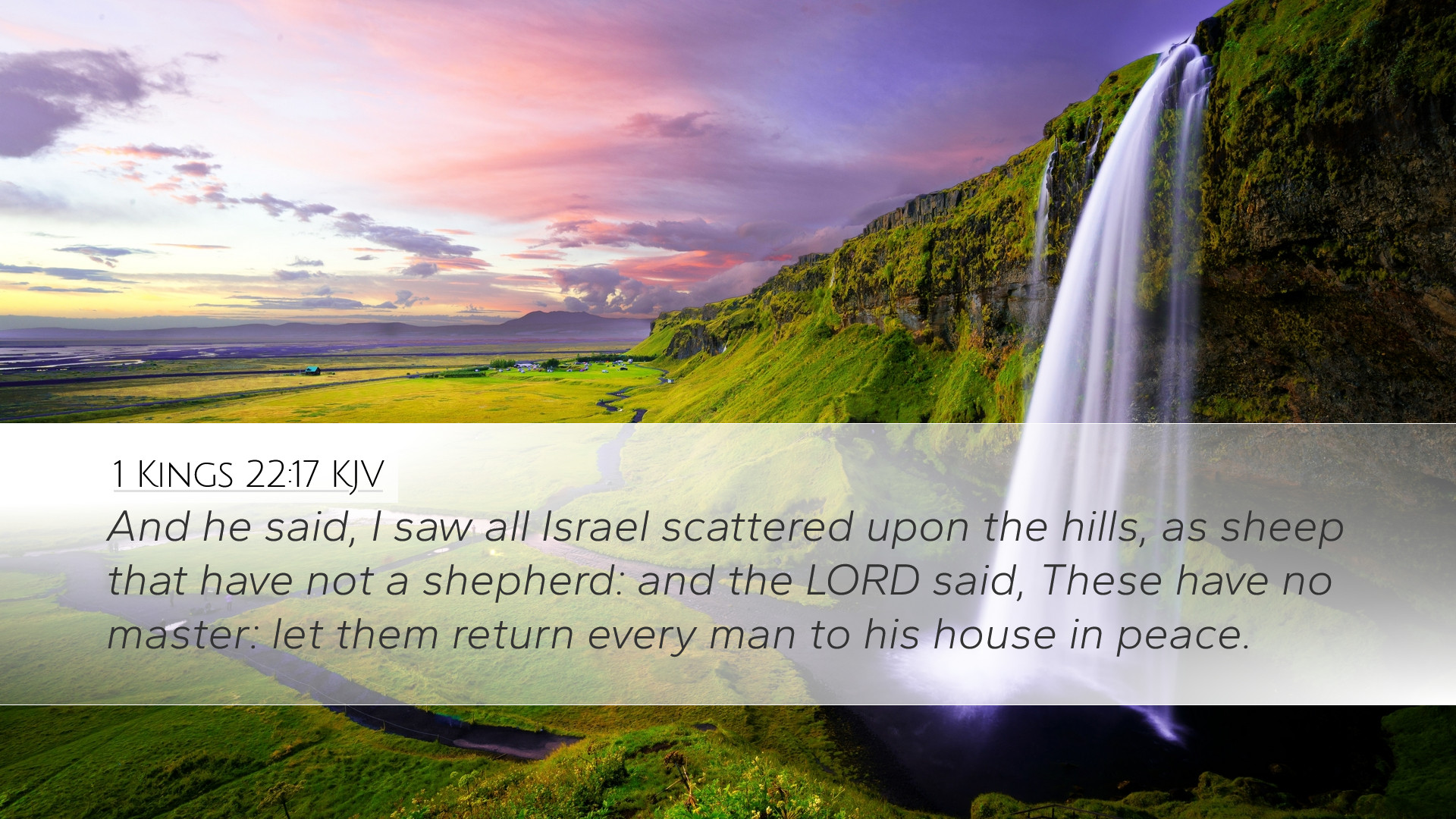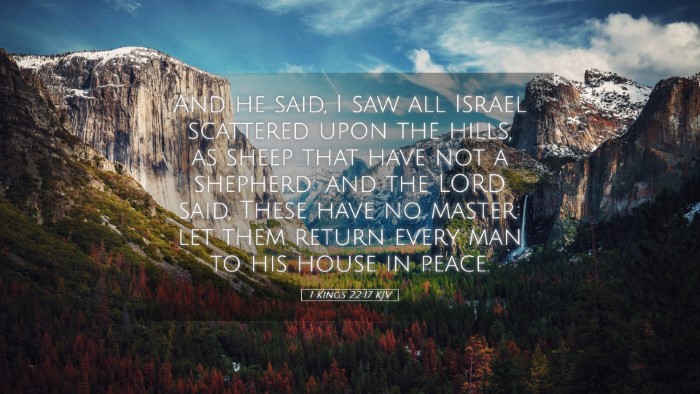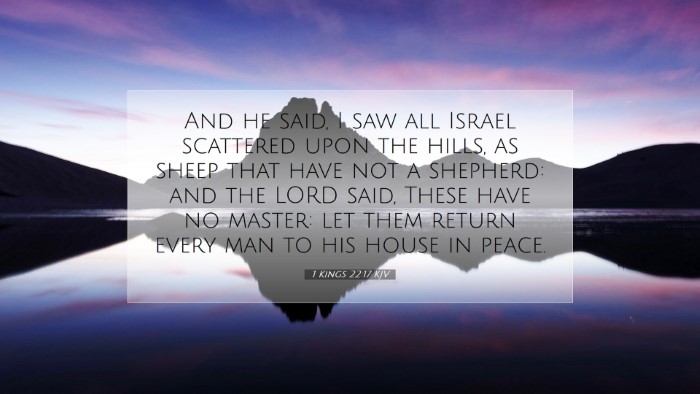Commentary on 1 Kings 22:17
Verse: "And he said, I saw all Israel scattered upon the hills, as sheep that have not a shepherd: and the LORD said, These have no master: let them return every man to his house in peace." (1 Kings 22:17)
Introduction
This verse provides a profound moment in the narrative of the kings of Israel, particularly focusing on King Ahab’s impending battle against Syria. The verse showcases the prophetic insight of Micaiah and underscores the consequences of leadership, divine judgment, and the pastoral role within the nation of Israel.
Exegesis and Contextual Analysis
In this passage, we observe a microcosm of leadership portrayed through the imagery of sheep without a shepherd. This imagery not only serves as a critique of King Ahab but also resonates through the biblical narrative regarding the expectations of leaders.
1. The Condition of Israel
- Scattered Like Sheep: The description of Israel as "scattered upon the hills" illustrates a state of vulnerability and absence of guidance. Barnes comments that Israel's spiritual and moral disarray is evident under Ahab's rule.
- Divine Observation: The LORD's proclamation of their state points to His omniscience. He sees their lack of direction and concern, emphasizing how misguided leadership can affect entire nations (see Matthew Henry's commentary).
2. The Role of the Shepherd
Shepherd as a Leader: Adam Clarke notes that the shepherd metaphorically represents kings, leaders, and spiritual guides in Israel. The absence of a shepherd signifies a lack of righteous authority, leading to chaos and disunity.
3. Prophetic Revelation
Micaiah’s prophecy serves not only as a forewarning of the battle's outcome but also as a reflection on the moral state of leadership. The prophetic insight reveals that these leaders will ultimately be judged for their actions. Here, the prophet acts as both a messenger and a moral compass.
Theological Implications
This verse is rich in theological implications regarding divine leadership oversight and moral accountability. The implications extend to understanding God’s care for His people as well as the responsibilities of those positioned in authority.
1. God’s Sovereignty
God’s declaration through Micaiah underscores His sovereignty over Israel's fate. This observation points theologians towards the understanding that leaders operate under divine scrutiny, reflecting the idea that all authority is ordained by God (Romans 13:1).
2. The Need for Spiritual Leadership
If we are to take away a key lesson from this text, it is the acute need for godly leadership in both spiritual and civic realms. The absence of a righteous leader leaves people vulnerable and misdirected, mirroring the heart of God for guidance and care.
Reflections for Pastors and Leaders
This scripture calls for self-reflection among pastors and spiritual leaders. They are reminded of their critical role as shepherds to their congregations. The dispersion of the flock signifies a failure in leadership; thus, it is crucial for leaders to enshrine their ministry under godly principles and direction:
- Accountability: Leaders must understand that their actions impact the spiritual state of their congregations.
- Guidance through God's Word: Regularly teaching and guiding the flock is essential to avoid scattering.
- Seeking Divine Wisdom: A humble reliance on prayer and the Word for leadership decisions enables clarity and direction.
Conclusion
In conclusion, 1 Kings 22:17 powerfully encapsulates the ramifications of leadership and the importance of divine guidance. The shepherd metaphor and God’s directive question reflect timeless truths relevant to all who aspire to lead—be it in faith communities or society at large. The leaders must embody the qualities of a good shepherd, attentive to the needs of their people while being held accountable by God's standards.


